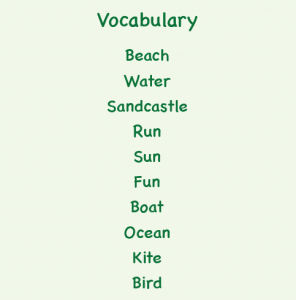
Words are powerful! The number of words that a child learns appears to be connected to socioeconomic influences. There has been a long standing concern over the vocabulary gap that exists between first graders who come from lower socioeconomic families, and children who are from middle class or wealthy class backgrounds. The issue stems from the size of the vocabulary that each of these groups of children possess. Those who have more resources are typically equipped with a knowledge for words at more than twice the size of their low-income counterparts. The prevailing notion among educators, is the fear that this gap is difficult to close. Although with proper teacher training, appropriate curriculum, and materials to support parents to also participate with their kids, the gap can be addressed.
But an article by Susan Neuman and Tanya Wright demonstrates that the gap can be managed and every child has the potential to succeed. The evidence they cite to back up their findings points to the preschool years as a formative time in a child’s education, when they show the most ability for gaining vocabulary skills. Teachers and other educators who intervene with proper instruction of vocabulary can help children who are lagging behind. Students who build their vocabulary early are often more successful in other areas like reading and reading comprehension. But it all begins with a concerted effort of teachers and parents to support the progress of the child who may be at a disadvantage due to socioeconomic influences. Kids who have this necessary assistance typically have a much better chance of catching up with their peers by the fourth grade.
Neuman and Wright also address a number of common myths that surround vocabulary education in young children, in an effort to separate fact from fiction when it comes to the most effective methods for teaching them to learn and understand new words. Among these, the myth that a child can learn a word from just hearing it once, when the reality proves that a child must have repetition to better comprehend and memorize the word through meaning and context. In addition, they reject the idea that reading alone will improve a child’s vocabulary and help him or her progress quickly enough to catch up with peers who are ahead of them in class. Neuman and Wright agree that additional vocabulary teaching methods must be employed alongside standard reading practices to get those children up to speed. The authors also stress the importance of oral and written vocabulary exercises to supplement their learning in order to give them every opportunity to expand their vocabulary to its potential.
If you are looking for a program to help young kids to develop vocabulary, Lectura Books offers award-winning bilingual children’s books that focus on language development with EnglishlLearners and Spanish learners. Another exceptional resource is the Family Phonics collection of workbooks for home use with parents and kids. Teachers can also attend a Professional Development training for working with Hispanic parents in a Parent Involvement program so that Spanish-speaking parents can learn to read and build vocabulary with their children, and you will witness the magic of parents and kids learning new vocabulary together.
